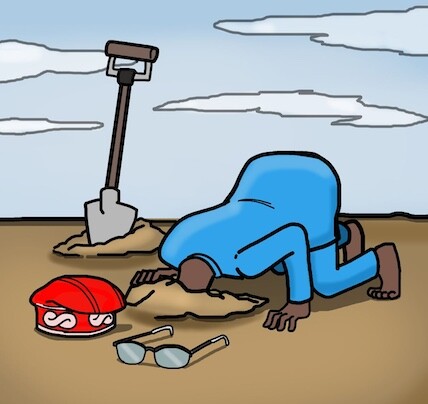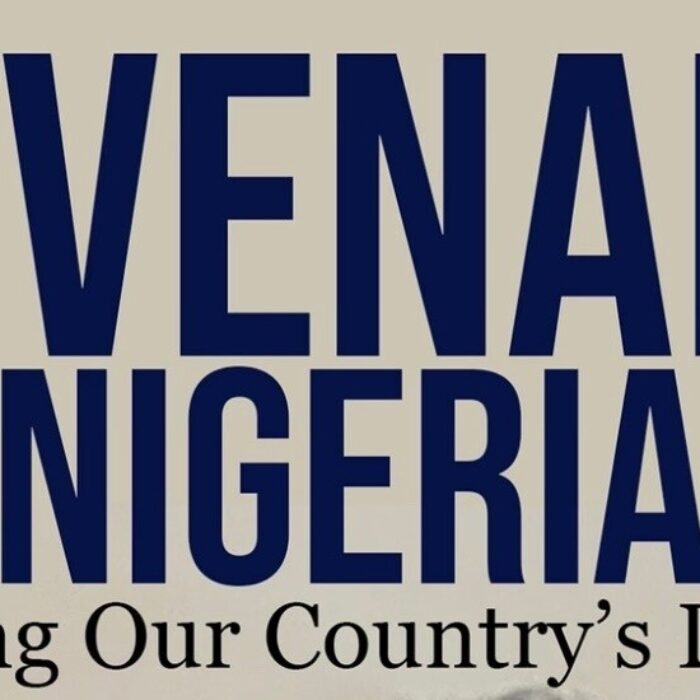Is it possible for any president to surpass the hardships imposed on Nigerians by former President Buhari at a similar juncture in their tenure? Indeed, President Clueless has managed to surpass even that dreadful standard, achieving new lows in merely eight calamitous months of misgovernance.
In the annals of political malpractice, the blunders and ineptitude of President Clueless stands as a testament to the disastrous consequences of ascending to presidential power through dubious assertions of destiny (“it’s God’s will for me to be the next president”), perceived birthright (“no one will take the presidency from me”), entitlement (“it’s my turn”), and past political experience (“I made Lagos; I will make Nigeria”).
President Clueless’s tenure so far highlights a pivotal lesson for Nigerians: possessing a background in Nigerian politics, whether as a state governor, a member of the National Assembly, or a minister, does not inherently equip one for the presidency.
Drawing lessons from the incompetence of President Clueless and those before him, it has become evident that previous political experience can sometimes act more as an impediment than an advantage for the nation.
In his eight months in office, President Clueless has directed Nigeria towards a brink of financial ruin, societal collapse, unthinkable misery and profound disarray. His uninspired leadership, overseeing a government perceived as incompetent and dysfunctional, has eroded public confidence in his ability to address the nation’s myriad problems.
Whenever President Clueless makes a public appearance, he fails to embody the qualities expected of a president or commander-in-chief. Instead, he presents himself as lacking in strength, vision, and competence, giving the impression of being out of touch and poorly advised by his team on critical issues such as the economy, unemployment, inflation and insecurity.
With his head buried deep in the sand and blind to the surrounding realities, President Clueless doesn’t seem to know what to do, and he lacks a coherent strategy to reverse the nation’s economic and insecurity woes. Under his misguided leadership, the nation’s economy has plummeted at an alarming rate, witnessing a downturn unprecedented, even during the tumultuous years of the Buhari administration.
While it’s true that President Clueless took over an already struggling economy, he bulldozed his way into the highest office with promises of rectifying Buhari’s mess, a promise that turned out to be as hollow as his claim of fixing Lagos when he was governor.
Conversations with Nigerians from diverse backgrounds—spanning the well-off to those struggling to make ends meet, from highly educated individuals to those in low-wage employment, including supporters of the APC, PDP, LP, and NNPP—reveal a universal feeling of distress, despair and disenchantment. Under his watch, inflation has soared to stratospheric heights, unemployment burgeoned with unbridled pessimism, and poverty spread with the efficiency of a virus.
Many in Nigeria are skeptical about President Clueless’s capability to manage the strenuous responsibilities of his office, citing concerns about his mental decline, poor decision-making and evident physical deterioration. There have been noticeable signs of decline in his mobility and speech, and during a trip to France, he seemed visibly drained and lacking vitality, indicating that the effects of aging might be taking their toll, something he seems unable to hide any longer.
When asked to highlight any positive outcomes from President Clueless’s term since taking office, many found it difficult to cite any achievements. Adekunle, a government employee in Ibadan, captured the general mood by stating, “this president hasn’t brought anything beneficial. I was better off during Buhari’s administration, despite its flaws. Tinubu has been a great letdown; I regret casting my vote for him.”
Okenne, a lawyer in Calabar, shared similar views, questioning if President Clueless is genuinely leading the country or if he is merely a figurehead for foreign economic powers and international financial institutions. He criticized Tinubu for policy missteps that seem to be influenced from abroad and a lack of a clear strategy, arguing that, “Tinubu took office without a solid plan to tackle Nigeria’s extensive issues, aiming for the presidency as an end in itself, for himself.”
Adebola, a father of four, found himself jobless after being laid off from his managerial position at a transportation firm in Lagos during the company’s staff reduction late last year. Reflecting on his decision at the ballot box, he admitted, “voting for the president was a grave error on my part. Now, I’m battling just to put food on the table for my family. The salary my wife earns as a teacher falls short of covering our rent.”
On President Clueless’s watch, essentials like food, shelter, and healthcare have turned into luxuries beyond the reach of most, sparking nostalgia for a time when these necessities were affordable and commonplace, not privileges enjoyed by only the wealthiest 5%.
And the politicians in the National Assembly are faring exceptionally well, living lavishly like sailors indulging in their last moments on a doomed ship, thanks to their self-granted, astonishingly high compensation and allowances, while everyone else is gasping for air in a struggle to survive.
Despite the glaring hardships faced by the citizens, President Clueless and his loyal band of propagandists boldly proclaimed to the beleaguered citizens that Nigeria boasted the lowest cost of living in Africa—a statement so detached from reality it bordered on the absurd. This disconnect not only highlighted President Clueless’s lack of awareness but also his profound insensitivity to the plight of Nigerians.
When queried about whether his life had improved since President Clueless assumed office, Ikechukwu, a Lagos-based businessman replied, “he pledged to enhance our lives. However, from the moment he took charge, my existence has been completely disrupted. My business has failed due to high operating costs. The cost of every food item has either doubled or tripled. We had to transfer my daughter from a private to a public school due to our inability to keep up with the soaring tuition. Life has become unbearably difficult. Things were more bearable under President Buhari.”
Under his tenure, crime has increased; turning Nigeria into a nightmarish haven for an array of criminals—kidnappers, murderers, robbers, swindlers, and others who prey on the vulnerable with alarming impunity. This surge in lawlessness paints a stark, dystopian portrait of a nation in decline.
Adamu, a 36-year-old employee of the local government in Jos, expressed his fear of leaving the city to visit his family, saying, “the entire state is in mayhem and chaos. You feel you’ll be killed. The government has no solutions. Violence is rampant, with killings occurring every day, everywhere. The situation is very bad.”
The general populace, already burdened by economic hardship and despair, could only watch as corruption becomes a rampant force within the government. The misuse of public funds has turned federal budget into grandiose displays of waste and extravagance, with officials indulging in fiscal recklessness as if it were a competitive sport.
Dr. Adebayo, a university professor, raised critical questions: “What became of the billions of dollars allocated for fuel subsidy that went unspent after the subsidy was removed? What about the criminals identified by the president as having exploited the subsidy system for years, siphoning off billions of dollars? Why hasn’t there been an effort to recover the embezzled funds from these individuals? The president assured Nigerians he knew who they were before taking office. Could it be that the culprits behind the subsidy fraud are now within his own cabinet?”
The hallmark of President Clueless’s administration, much to the detriment of Nigeria’s future, is his relentless “borrow-and-spend” policy. This policy, zealously embraced by both the President and a compliant National Assembly, has been the only consistent policy so far in his tenure, exacerbating the nation’s woes and cementing his legacy as one of governance by borrowing more and spending more.
Dr. Abubakar, an economist based in Zaria, criticized the fiscal policies under the current administration, stating, “the president is spending funds that the nation doesn’t have, taking on debts that will burden generations to come. He allocates vast sums to National Assembly members and ministers to secure their silence and cooperation, akin to the tactics of a mafia boss. It’s utterly baffling why creditors still choose to finance this administration, given its approach,” when discussing Nigeria’s escalating debt issue.
President Clueless’s reign is a masterclass in economic polarization, with a small elite luxuriating in the spoils of their proximity to power, while the vast majority languish in the shadows of deprivation. Regrettably, countless Nigerians end their day in hunger, with even more facing uncertainty about where their next meal will come from.
Akpan, a small-scale trader based in Uyo, expressed his profound distress over the escalating hardships his family is facing, reflecting on his disappointment with the current economic conditions. “I had hopes that the situation would improve following the difficult period we experienced under Buhari. However, the cost of living is out of control. With four children to provide for, I find myself unable to adequately feed them due to the steep prices of basic food items. The excessive transportation cost due to removal of fuel subsidy significantly diminished my profits from selling goods in the market. The situation deteriorates daily, and I am resolved never to cast my vote for APC again,” he shared, conveying a sense of disillusionment and the impact of economic challenges on his family’s wellbeing.
Through a series of policy blunders by President Clueless that would be comedic if their consequences were not so tragically tangible, Nigeria teeters on the precipice of national collapse, its societal fabric fraying under the weight of high debt burden, economic mismanagement and political corruption.
The citizens of Nigeria face a crucial decision: succumb to despair and passivity or channel their collective frustration—often voiced from the comfort of their couches and social media platforms—into meaningful action for change. It’s time for the public, alongside media and intellectuals, farmers and market women, labor organizations and traders, to harness their collective power, transforming passivity into urgent demand for change in a peaceful manner.
Living rooms, offices, town squares and marketplaces should evolve into modern arenas of democracy, with citizens leveraging technology, like smartphones and social media, to initiate campaigns aimed at reclaiming their nation from the grips of poor governance and pervasive corruption. The path to rescuing Nigeria from a legacy of incompetence lies squarely in the hands of its people.




